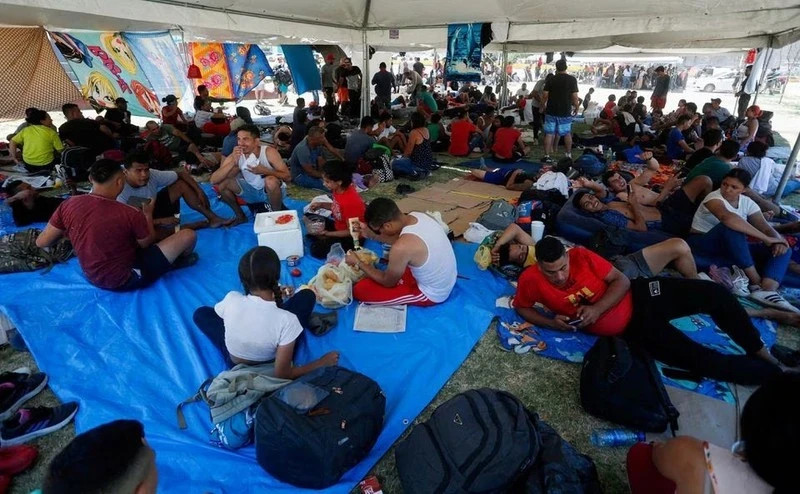NBC News reports that, although no surge in migration has been observed yet, DHS officials have voiced concerns about the impact on border security following Donald Trump’s recent victory in the presidential election.
On the official US election day, a caravan of approximately 3,000 migrants, including pregnant women and children, set out from southern Mexico toward the US. This migration was spurred by fears that Trump, known for his strong stance against illegal immigration, might close the border when he assumes office in early 2025.
Throughout his campaign, Trump maintained a tough stance on immigration, pledging to conduct the largest deportation effort in US history against illegal refugees. He also plans to reinstate several controversial policies from his first term, including the “Remain in Mexico” programme, which requires asylum seekers to stay in a neighbouring country until their US application is approved.
Illegal migration into the US has been a significant concern for the government for years. In June, President Biden issued a ban on asylum to reduce record-high numbers of unauthorised border crossings. Just before the presidential election, DHS announced that the Biden administration was tightening the asylum ban at the US-Mexico border to further curb illegal crossings.
According to DHS, the tightened restrictions will remain until the number of unauthorised migrant arrests at the border falls below an average of 1,500 people per day for 28 days, significantly extending the current seven-day requirement.
Illegal migration into the US comes not only from neighbouring Mexico but also from other countries in the region. Statistics from Panama’s National Migration Agency reveal that over 281,000 people have entered Panama illegally via the Darien jungle, which borders Panama and Colombia, on their journey to the US. Among them, Venezuelan migrants constitute the largest group, at over 196,800 people, followed by migrants from Colombia (over 16,000) and Ecuador (over 15,000).
In October alone, more than 21,500 migrants arrived at reception centres in Panama’s Darien Province after crossing the Darien jungle. Criminal groups like the Gulf Cartel and Tren de Aragua have exploited the migration of hundreds of thousands of people from Venezuela, Colombia, Haiti, and Ecuador to engage in human trafficking and drug smuggling. Panamanian President Jose Raul Mulino stated that, since July, the Government of Panama, with US support, has carried out at least 23 repatriation flights, returning nearly 800 illegal migrants, primarily to Colombia.
This situation has led neighbouring countries to call for a comprehensive solution to the regional migration crisis. Mexican President Andres Manuel Lopez Obrador urged the US not to build a border wall or militarise the border area but instead to invest more into Latin American countries.
President Obrador mentioned that Mexico is implementing various social programmes, such as “Sowing Life”, in Guatemala, Honduras, El Salvador, Haiti, Venezuela, Colombia, Belize, and Cuba to help improve living conditions in these countries and curb migration.
Migration is no longer solely a US issue but a shared challenge for all neighbouring countries. Therefore, to address the root causes and prevent future migration waves, the incoming administration under President-elect Trump will need to focus more on jointly supporting impoverished countries in Central America and the Caribbean. Building a border wall or militarising areas with high levels of illegal migration into the US only addresses the ‘surface’ of the problem.
















